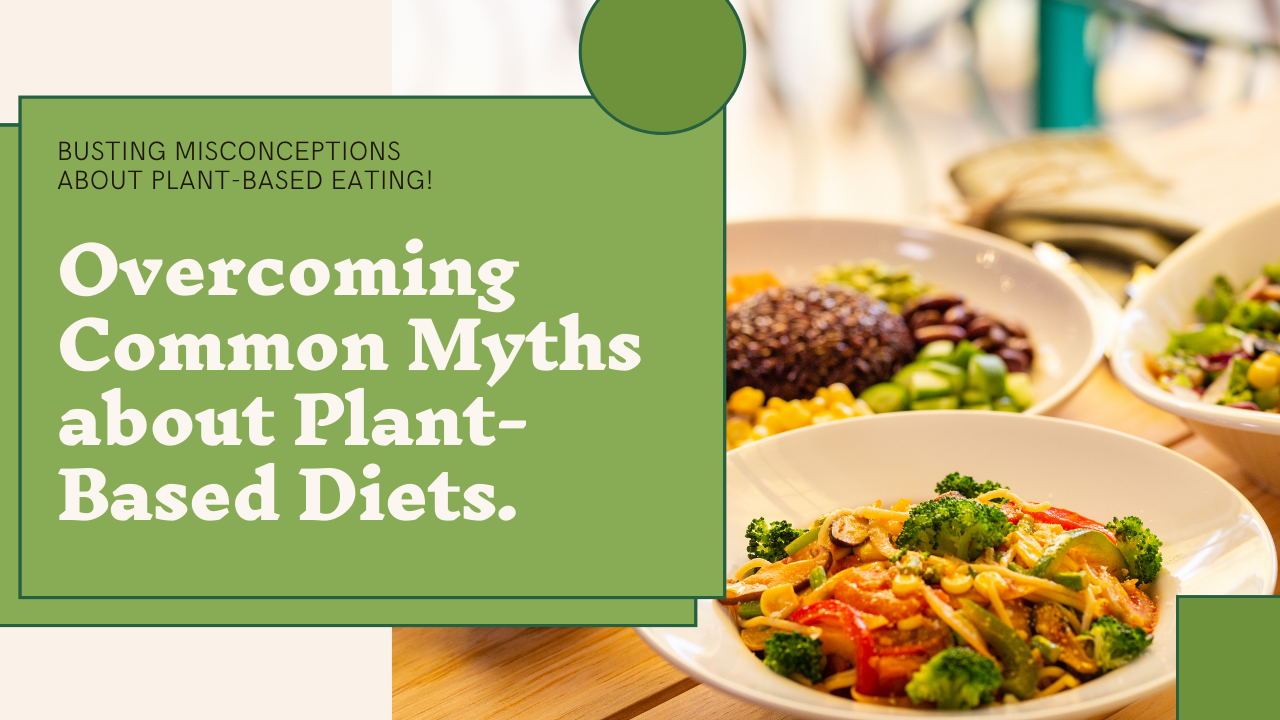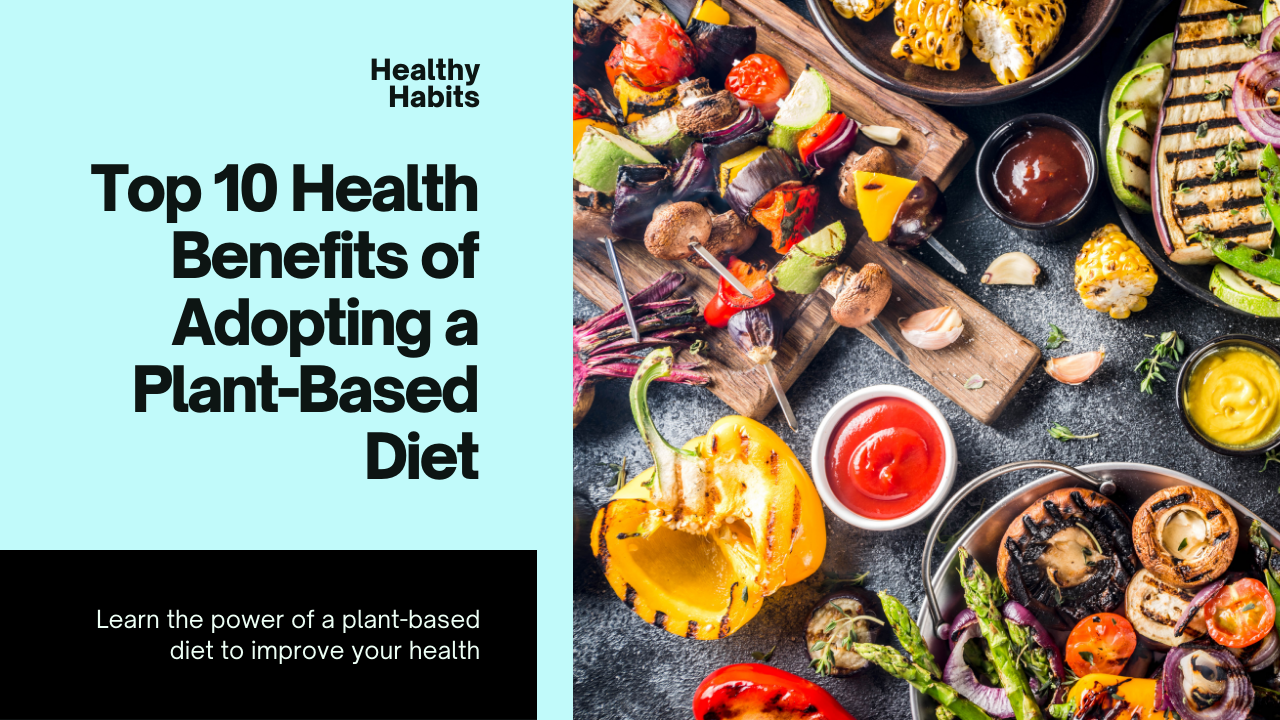In recent years, plant-based eating has surged in popularity, recognized for its health benefits and environmental sustainability. Despite this growing interest, several myths and misconceptions deter individuals from considering this dietary approach. Let’s demystify some of the most common myths and pave the way for a more informed understanding of plant-based eating.
Myth 1: Plant-Based Diets Are Protein Deficient
One of the most persistent myths is that plant-based diets cannot provide enough protein. This concern stems from the misconception that only animal products contain high-quality protein. However, numerous plant-based sources are rich in protein, including lentils, chickpeas, quinoa, tofu, tempeh, leafy greens, and various nuts and seeds. These foods offer not just protein but also a range of other nutrients beneficial for health.
Research has shown that plant-based diets can meet or exceed protein requirements when a variety of these foods are consumed daily. Moreover, plant proteins compared to animal products substantially reduces the risk of heart disease, cancer, stroke, diabetes and other chronic illnesses, as well as contributing to overall wellness and environmental health^[1].
Myth 2: Plant-Based Diets Lack Variety
Another common misconception is that adopting a plant-based diet limits food choices, leading to a monotonous and unenjoyable eating experience. On the contrary, plant-based eating encourages diversity in food selection by highlighting an array of fruits, vegetables, grains, legumes, nuts, and seeds.
The variety available in plant-based cuisine is vast and globally inspired. Many cuisines traditionally offer a wide range of vegan options: Ethiopian, Lebanese, Mediterranean, Chinese, Thai, Vietnamese, Mexican, Italian, Indian, Greek, and beyond. In addition, vegan chefs have created a meat-free alternative to almost any dish you can name. This diversity not only makes meals interesting and flavorful but also ensures a wide range of nutrients to support health. Exploring plant-based recipes can open up a world of culinary possibilities, debunking the myth of a lack of variety^[2].
Myth 3: Plant-Based Diets Are More Expensive
A common barrier to plant-based eating is the perception that it is significantly more costly than a diet including meat. While specialty vegan products and organic produce can be expensive, the staples of a plant-based diet—such as grains, beans, sunflower seeds, and seasonal vegetables—are often among the most affordable foods available, typically selling for $2 per pound or less—well below the cost of animal products.
Economically, plant-based diets can be less expensive in the long term, especially when considering the health benefits and potential reductions in healthcare costs related to diet-related diseases. Shopping in bulk, choosing local and in-season produce, and minimizing the purchase of highly processed vegan substitutes are practical ways to enjoy a plant-based diet on a budget.
Myth 4: Plant-Based Diets Are Incomplete Nutritionally
Fact: A well-planned plant-based diet can provide all the necessary nutrients for optimal health, except for vitamin B12, which can be easily supplemented. With a variety of fruits, vegetables, grains, legumes, nuts, and seeds, individuals can obtain essential vitamins, minerals, proteins, and fats. The key is diversity and balance to ensure nutritional adequacy^[1].
Myth 5: You Can’t Build Muscle on a Plant-Based Diet
Fact: Muscle building is entirely possible on a plant-based diet, provided you consume adequate calories and protein from a variety of plant sources. Many plant-based foods, such as legumes, tofu, tempeh, and quinoa, are rich in protein. Moreover, many athletes and bodybuilders successfully follow plant-based diets while achieving their fitness goals. Many top athletes are vegan, here are a few: Novak Djokovic, Serena Williams, Martina Navratilova, Chris Paul, and Strongman Patrik Bouboumian.
Overcoming Misconceptions Through Education and Awareness
Educating oneself and others about the nutritional adequacy and diversity of plant-based diets is key to overcoming these myths. A Loma Linda study, peer reviewed more than 300 times, finds that vegetarian Adventist’s live substantially longer than the average person—9 years longer for men and 6 years longer for women^[3]. Health professionals, dietitians, and nutritionists can provide valuable guidance for those interested in making the transition, ensuring that nutritional needs are met in a balanced and enjoyable way.
Additionally, the growing availability of plant-based options in restaurants and supermarkets reflects a shift towards more inclusive and accessible plant-based eating. This trend, along with educational efforts, can further dispel misconceptions and encourage a more informed and open-minded approach to diet and health.
Conclusion
The myths surrounding plant-based eating—concerning protein deficiency, lack of variety, and cost—are rooted in misconceptions and outdated information. By examining the evidence and exploring the abundance of plant-based foods, it becomes clear that this dietary approach is not only nutritionally adequate but also diverse and accessible. Embracing plant-based eating can lead to significant health and environmental benefits, offering a compelling option for those looking to improve their diet and lifestyle.


